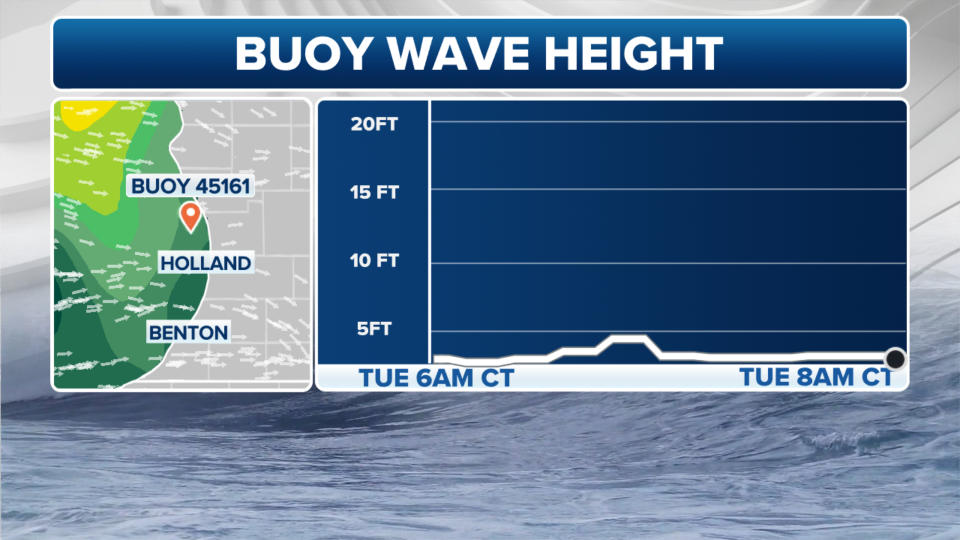Watch: Meteotsunami strikes Lake Michigan during severe storms, causing unusual 2-foot water rise on beach
HOLLAND, Mich. – A meteotsunami struck two Michigan beaches while severe weather blasted Lake Michigan on Tuesday.
A meteorologist at the National Weather Service office in Grand Rapids, Michigan, confirmed to FOX Weather that a "minor" meteotsunami occurred at beaches in Ludington and Holland.

The unusual extreme weather event occurred during the early-morning hours, resulting in a 2-foot water rise on the beach, the FOX Forecast Center said.

A camera inside Holland State Park captured a time-lapse of the meteotsunami in its entirety. The city said the primary use of the camera is to show current weather conditions to inform visitors of high-risk water conditions.
Meteotsunamis, which NOAA says are large waves, are beginning to be understood by scientists. Unlike tsunamis caused by earthquakes, meteotsunamis are driven by air pressure changes often connected to fast-moving weather events, like severe thunderstorms in this case.
WHAT IS A TSUNAMI AND WHAT CAUSES THEM?
Although usually smaller and less damaging than regular tsunamis, meteotsunamis have been observed to reach heights of 6 feet or more in various locations around the world.
Aside from the Great Lakes, they are also known to occur in the Gulf of Mexico, along the Atlantic coast and in the Mediterranean and Adriatic seas.
Original article source: Watch: Meteotsunami strikes Lake Michigan during severe storms, causing unusual 2-foot water rise on beach


